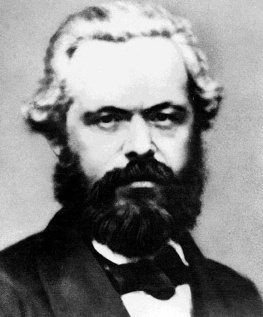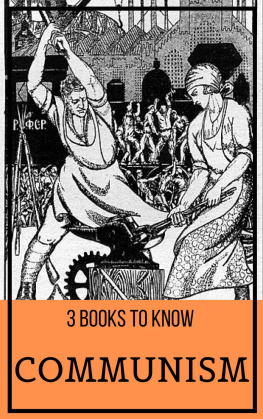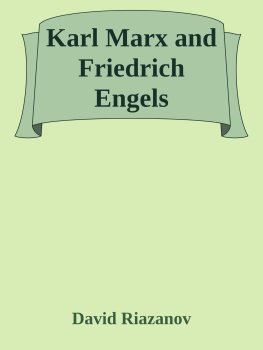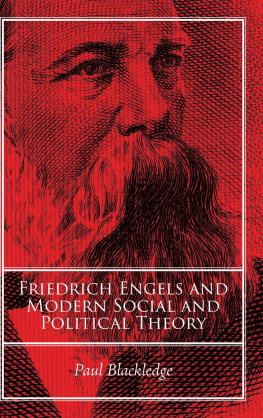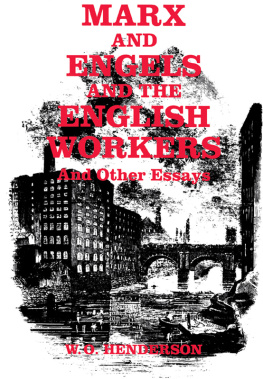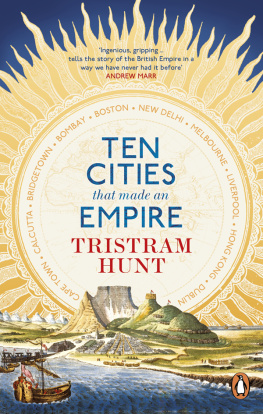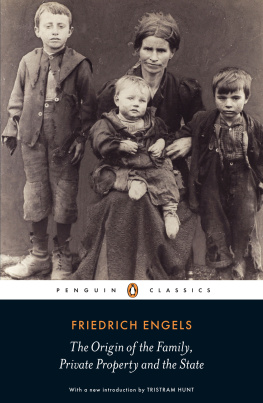Tristam Hunt - The Frock-coated Communist: The Revolutionary Life of Friedrich Engels
Here you can read online Tristam Hunt - The Frock-coated Communist: The Revolutionary Life of Friedrich Engels full text of the book (entire story) in english for free. Download pdf and epub, get meaning, cover and reviews about this ebook. year: 2009, publisher: Penguin Books, genre: Detective and thriller. Description of the work, (preface) as well as reviews are available. Best literature library LitArk.com created for fans of good reading and offers a wide selection of genres:
Romance novel
Science fiction
Adventure
Detective
Science
History
Home and family
Prose
Art
Politics
Computer
Non-fiction
Religion
Business
Children
Humor
Choose a favorite category and find really read worthwhile books. Enjoy immersion in the world of imagination, feel the emotions of the characters or learn something new for yourself, make an fascinating discovery.

- Book:The Frock-coated Communist: The Revolutionary Life of Friedrich Engels
- Author:
- Publisher:Penguin Books
- Genre:
- Year:2009
- Rating:4 / 5
- Favourites:Add to favourites
- Your mark:
- 80
- 1
- 2
- 3
- 4
- 5
The Frock-coated Communist: The Revolutionary Life of Friedrich Engels: summary, description and annotation
We offer to read an annotation, description, summary or preface (depends on what the author of the book "The Frock-coated Communist: The Revolutionary Life of Friedrich Engels" wrote himself). If you haven't found the necessary information about the book — write in the comments, we will try to find it.
Tristam Hunt: author's other books
Who wrote The Frock-coated Communist: The Revolutionary Life of Friedrich Engels? Find out the surname, the name of the author of the book and a list of all author's works by series.
The Frock-coated Communist: The Revolutionary Life of Friedrich Engels — read online for free the complete book (whole text) full work
Below is the text of the book, divided by pages. System saving the place of the last page read, allows you to conveniently read the book "The Frock-coated Communist: The Revolutionary Life of Friedrich Engels" online for free, without having to search again every time where you left off. Put a bookmark, and you can go to the page where you finished reading at any time.
Font size:
Interval:
Bookmark:
TRISTRAM HUNT
The Revolutionary Life of Friedrich Engels

ALLEN LANE
an imprint of
PENGUIN BOOKS
ALLEN LANE
Published by the Penguin Group
Penguin Books Ltd, 80 Strand, London WC2R 0RL , England
Penguin Group (USA) Inc., 375 Hudson Street, New York, New York 10014, USA
Penguin Group (Canada), 90 Eglinton Avenue East, Suite 700, Toronto, Ontario, Canada M4P 2Y3 (a division of Pearson Penguin Canada Inc.)
Penguin Ireland, 25 St Stephen's Green, Dublin 2, Ireland (a division of Penguin Books Ltd)
Penguin Group (Australia), 250 Camberwell Road, Camberwell, Victoria 3124, Australia (a division of Pearson Australia Group Pty Ltd)
Penguin Books India Pvt Ltd, 11 Community Centre, Panchsheel Park, New Delhi 110 017, India
Penguin Group (NZ), 67 Apollo Drive, Rosedale, North Shore 0632, New Zealand (a division of Pearson New Zealand Ltd)
Penguin Books (South Africa) (Pty) Ltd, 24 Sturdee Avenue, Rosebank, Johannesburg 2196, South Africa
Penguin Books Ltd, Registered Offices: 80 Strand, London WC2R 0RL , England
www.penguin.com
First published 2009
Copyright Tristram Hunt, 2009
The moral right of the author has been asserted
The author would like to thank Lawrence & Wishart for their kind permission to quote from Marx Engels Collected Works (London 19752004)
All rights reserved
Without limiting the rights under copyright reserved above, no part of this publication may be reproduced, stored in or introduced into a retrieval system, or transmitted, in any form or by any means (electronic, mechanical, photocopying, recording or otherwise) without the prior written permission of both the copyright owner and the above publisher of this book
ISBN: 978-0-14-192686-5
To D. W. H. H.
Endpapers
Unveiling of a statue of Marx and Engels, Moscow, 1918 (David King Collection, London)
Plates
Integrated illustrations
For their generous assistance with the research, writing and production of this book, the author would like to thank Alice Austin, Sara Bershtel, Phillip Birch, Georgina Capel, Michael V. Carlisle, Barney Cokeliss, Bela Cunha, Andrew and Theresa Curtis, Dermot Daly and the Cheshire Hunt, Virginia Davis and the Department of History, Queen Mary, University of London, Thomas Dixon, Orlando Figes, Giles Foden, Tom Graves, Michael Herbert, Eric Hobsbawm, Julian and Marylla Hunt, Stephen Kingston, Nick Mansfield, Ed Mili-band, Seumas Milne, Liudmila Novikova, Alastair Owens, Stuart Proffitt, Caroline Read, Stephen Rigby, Donald Sassoon, Sophie Schlondorff, Bill Smyth, Gareth Stedman Jones, Juliet Thornback, Benjamin and Yulia Wegg-Prosser, Francis Wheen, Bee Wilson, Michael Yehuda. In addition, the staff of the British Library; Engels-Haus, Wuppertal; the International Institute of Social History, Amsterdam; the London Library; the Marx Memorial Library, London; the People's History Museum, Manchester; the Working Class Movement Library, Salford.
Central Europe, 1815 66
On 30 June 1869 Friedrich Engels, a Manchester mill owner, gave up his job in the family business after nearly twenty years. Ready to greet him, on the path of his small cottage in the Chorlton suburbs, were his lover Lizzy Burns and houseguest Eleanor Marx, daughter of his old friend Karl. I was with Engels when he reached the end of his forced labour and I saw what he must have gone through all those years, Eleanor later wrote of Engels's final day at work,
I shall never forget the triumph with which he exclaimed for the last time! as he put on his boots in the morning to go to his office. A few hours later we were standing at the gate waiting for him. We saw him coming over the little field opposite the house where he lived. He was swinging his stick in the air and singing, his face beaming. Then we set the table for a celebration and drank champagne and were happy.
Friedrich Engels was a textile magnate and fox-hunter, member of the Manchester Royal Exchange and president of the city's Schiller Institute. He was a raffish, high-living, heavy-drinking devotee of the good things in life: lobster salad, Chteau Margaux, Pilsener beer and expensive women. But for forty years Engels also funded Karl Marx, looked after his children, soothed his furies and provided one half of history's most celebrated ideological partnership: co-author of the Communist Manifesto and co-founder of what would come to be known as Marxism. Over the course of the twentieth century, from Chairman Mao's China to the Stasi state of the GDR, from the anti-imperial struggle in Africa to the Soviet Union itself, various manifestations of this compelling philosophy would cast their shadow over a full third of the human race. And as often as not, the leadership of the socialist world would look first to Engels rather than Marx to explain their policies, justify their excesses and shore up their regimes. Interpreted and misinterpreted, quoted and misquoted, Friedrich Engels the frock-coated Victorian cotton lord became one of the central architects of global communism.
Today, a journey to Engels begins at Moscow's Paveletsky rail station. From this shabbily romantic Tsarist-era terminal, the rusting sleeper train heaves off at midnight for the Volga plains hundreds of miles south-east of the capital. A grinding, stopstart fourteen-hour journey, alleviated only by a gurgling samovar in the guard's carriage, eventually lands you in the city of Saratov with its wide, tree-lined streets and attractive air of faded grandeur.
Bolted on to this prosperous, provincial centre is a crumbling, six-lane highway which bridges the mighty river Volga and connects Saratov to its unloved sister city, Engels. Lacking any of Saratov's sophistication, Engels is a grotty, forgotten site dominated by railway loading docks and the rusting detritus of light industry. At its civic centre squats Engels Square: a bleak parade ground encircled by housing estates, a shabby strip-mall dotted with sports bars, casinos and DVD stores, and a roundabout clogged with Ladas, Sputniks and the odd Ford. Here, in all its enervating grime, is the post-communist Russia of hyper-capitalism and bootleg Americana. And amidst this free-market dystopia stands a statue of Friedrich Engels himself fifteen-foot high atop a marble plinth and with a well-tended municipal flowerbed at his heels, he looks resplendent in his trench coat clutching a curled-up copy of the Communist Manifesto.
Across the former USSR and Eastern bloc, the statues of Marx (together with those of Lenin, Stalin and Beria) have come down. Decapitated and mutilated, their remains are gathered together in monument graveyards for the ironic edification of Cold War cultural tourists. Inexplicably, Engels has been given leave to remain, still holding sway over his eponymous town. As a quick conversation with local residents and early evening promenaders in Engels Square reveals, his presence here is the product neither of affection nor admiration. Certainly, there is little hostility towards the co-founder of communism, but rather a weary apathy and nonchalant ignorance about the adamantine figure whose face they pass by daily. As with the nineteenth-century generals and long-forgotten social reformers on myriad plinths littering the squares of western European capitals, Engels has become an unknown and unremarkable part of the civic wallpaper.
Next pageFont size:
Interval:
Bookmark:
Similar books «The Frock-coated Communist: The Revolutionary Life of Friedrich Engels»
Look at similar books to The Frock-coated Communist: The Revolutionary Life of Friedrich Engels. We have selected literature similar in name and meaning in the hope of providing readers with more options to find new, interesting, not yet read works.
Discussion, reviews of the book The Frock-coated Communist: The Revolutionary Life of Friedrich Engels and just readers' own opinions. Leave your comments, write what you think about the work, its meaning or the main characters. Specify what exactly you liked and what you didn't like, and why you think so.

